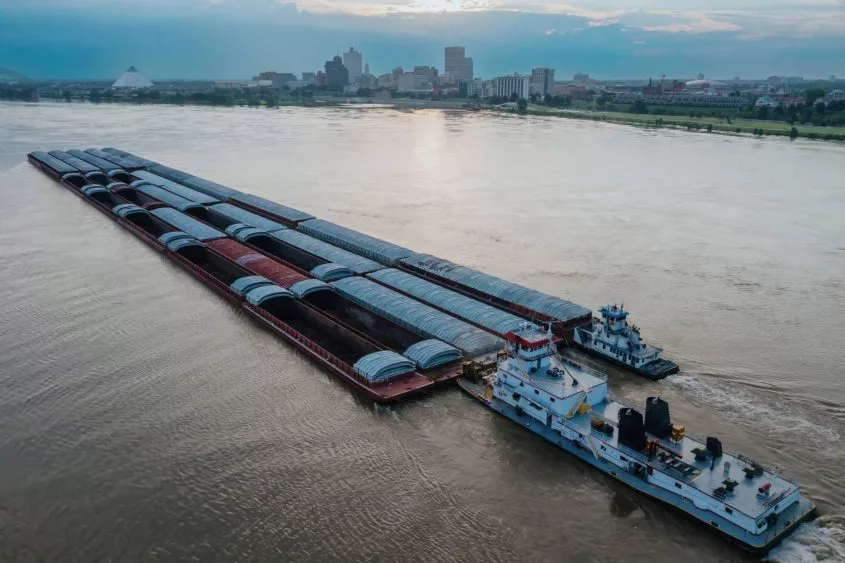
Extreme weather events, like drought, jointly impact agricultural production and rural infrastructure, including transportation infrastructure. An important part of this transportation infrastructure is the Mississippi River. It serves as one of the most critical networks for moving agricultural commodities.
According to a new research paper by James L. Mitchell and Hunter D. Biram from the University of Arkansas, soybeans, the leading U.S. agricultural export, rely heavily on barge transportation with 53 percent of exports moved by barge. Despite this reliance on barges for moving U.S. grain, little is known about the link between extreme weather, rural transportation infrastructure, and crop prices.
Record-low water levels increased transportation costs and barge freight rates. Higher transportation costs are transmitted to row crop producers through lower cash bids or a weakening of local crop basis. Historic lows in Mississippi River levels during the fall harvest of the last three years have highlighted the need to measure the impact of these low river levels on rural infrastructure and communities. When the river stream gauge in Memphis, Tennessee reads -5 feet, Arkansas soybean basis weakens (widens) by $0.58 per bushel.



